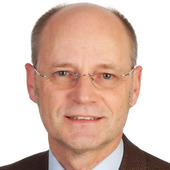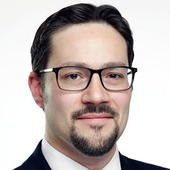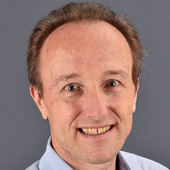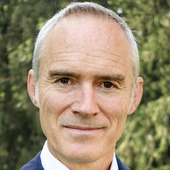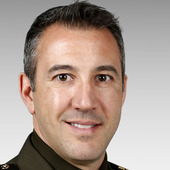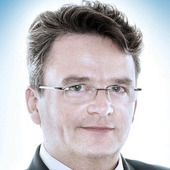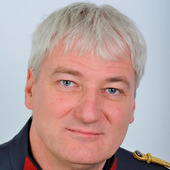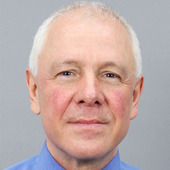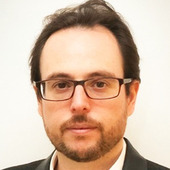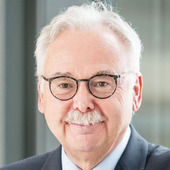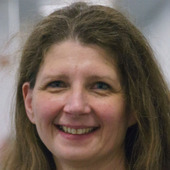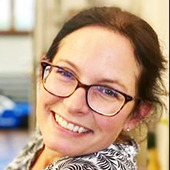ARE POLICE TRAINERS GRADUALLY BEING REPLACED? THE ROLE OF POLICE TRAINERS IN VR
Summary
SHOTPROS is an EU-funded research project (Horizon 2020, No 833672) which aims to develop a training programme and a supportive virtual reality system that allows police to reach the right decisions based on the situation they find themselves in, including situations when they are under stress. Scenario-based virtual police training is increasingly of interest, and there are many clear advantages: time, materials and resources can be saved during training preparation and delivery. Audiovisual preparation for all kinds of events has become easier thanks to modern technology, however this has implications when it comes to the role played by police trainers. Theoretically, a system can measure everything that happens, so what does the police trainer add? This is what we’re going to delve into during a 15-minute keynote presentation. The project background and results will be also introduced and feed into the subsequent discussion.
Presentation: "SHOTPROS: Virtual Reality (VR) im polizeilichen Training. Wird der Trainer in Zukunft ersetzt? Die Rolle des Trainers in der VR"

BIRGIT HARTHUM (SHOTPROS/USECON)
Having studied management at the Vienna University of Economics and Business, Birgit Harthum worked for over ten years in international software product management. Her main focus was translating ideas into reality on the market as well as ensuring existing products’ long-term market implantation and development. Throughout this work, Harthum’s focus was on the interaction between users, decision-makers and development. This experience led Harthum to decide to change sides, thus she began working in strategic development for USECON. As project coordinator and business developer, at USECON Harthum is primarily responsible for strategic projects — managing international and multidisciplinary partners is her hobby horse. USECON provides digitalisation advisory services for companies and, thanks to its user experience and customer experience, acts as a bridge between economic and technical circles. Originally a university spin-off, USECON has over 20 years’ experience in research and works in a multidisciplinary field, straddling research, technical expertise and end-users.
DEVELOPING VIRTUAL REALITY IN POLICE TRAINING: THE FIRST STEPS WITHIN THE CANTONAL POLICE OF GENEVA
Summary
Virtual reality (VR) is an emerging technology that offers many applications. There is great potential for VR infrastructure within police forces, for many purposes throughout all stages of professional life and in different settings such as during recruitment, initial training, lifelong learning, executive training, debriefings or indeed internal mobility. Since 2017, the cantonal Police of Geneva (PCGE) and the University of Geneva (UNIGE), via the intermediary of the Laboratory of Multimodal Modelling of Emotion-Feeling (MMEF) led by Professor David Rudrauf, have expressed a keen interest in collaborating on applying emotional science and VR to training in security professions. The Center for Police and Security Professions Training (CFPS) and UNIGE have developed the prototype for a tool dedicated to VR training (2018-2020, funded by the CFPS), based on robust and innovative scientific research, under and by the technical management of Dr. Yvain Tisserand. Simultaneously, since 2017, six master dissertations have been dedicated to this topic. Moreover, an ongoing PhD aims to better understand, measure and optimise police personnel’s reactions when under stress, as well as their emotional regulation strategies and their decision-making, in particular when it comes to the use of force. “Is virtual reality psycho-emotional training suitable for optimising police officers’ use of force?” (Bouchoucha, 2019–). This is the question that sparked her five-year research that began in 2019. Subdivided into three studies, Bouchoucha focuses on the “square drill” training during which recruits must respond the most correctly to a given threat. Initial results from the first study as well as the next steps and limits identified will be presented. Thereafter, a comparison between the efficacy of VR training and classic training will be presented, including an evaluation of the efficacy of methods used during emblematic police scenarios.
Presentation: "Outil d’entraînement en Réalité Virtuelle pour la police genevoise"

SÉOLANE BOUCHOUCHA (Geneva cantonal police)
Séolane Bouchoucha holds a Master in occupational and organisational psychology (University of Neuchâtel, 2014), and has been working as a psychologist for the Geneva Cantonal Police since 2015 (recruitment, training, project support and development). Trained in emergency psychology, she also works for AVP Police when she comes into contact with the local population following mandates received from the Lausanne Municipal Police. From 2016 she has taught Psychology at the Police Academy Savatan and has participated in developing the field “Transfer” that aims to involve and apply psychology during police intervention simulations. This experience at the police training establishment sporned her interest in situational analysis, decision-making processes and emotional regulation in ambiguous situations among police applicants and police officers. Since 2018, she has been pursuing her PhD in psychology within the UNIGE MMER laboratory. Since 2019, she has been in charge of the roll-out of the training programme TOPÒ (techniques for developing potential) within the police force.
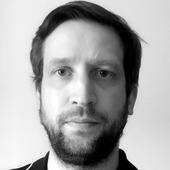
YVAIN TISSERAND (University of Geneva)
Dr. Yvain Tisserand is currently assistant lecturer at the University of Geneva, at the Laboratory of Multimodal Modelling of Emotion-Feeling (MMEF) and at the Swiss Center for Affective Sciences (CISA). He also studied Computer Graphics at the University of Geneva and obtained his PhD in Computer Science under the supervision of Prof. Nadia Magnenat-Thalmann (MIRALab/UNIGE) in 2018. His current research focuses on the creation of emotional virtual humans for virtual reality experiments and on the creation of applied tools in order to apply his computer graphics skills in various fields such as reducing the pain levels experienced by children in emergency services. Moreover, he also works on the creation of immersive tools that aim to raise awareness about climate change issues. Since 2018 he has been involved in creating and implementing interactive virtual reality simulation tools to train police personnel. He has created several prototypes which allow VR to be tested in various contexts, such as during stop and search, when working as part of a pair, for individuals in an urban environment and for ensuring a car park is safe.
VIDEO-RETEX : AN EDUCATIONAL APPROACH TO BODY CAMS AND LESSONS LEARNT FROM PROFESSIONAL EXPERIENCE
Summary
Over the course of the last decade, many countries’ police forces have been equipped with body cams. Scientific research on this topic has also grown and now supports police organisations in conducting a rigorous assessment of this technology. There are three promising avenues for using body cams: as a training tool, to provide feedback on policing practices, and to take stock of professional experience. Moreover, the immersive experience provided by recorded images and sound imparts educational added value when it comes to learning lessons and improving police practices. The “Video-Retex™” approach, developed in consultation with several first response services (police, firefighters and paramedics), will be presented.
Presentation: "VIDEO-RETEX®. Une approche formative des bodycam au service du retour d’expérience professionnelle"
MICHAËL MEYER (University of Lausanne)
Michaël Meyer is a sociologist and research manager of ColLaboratoire, a research unit specialising in applied and participative approaches, at the University of Lausanne. His work focuses on contemporary transformations of work and the evolution of professional groups, with a particular emphasis on the influence of new technology and digital images in working practices. Michaël Meyer’s research has dealt with various aspects of public security, for instance the relationship between police work and the media, as well as the collaboration between police officers and psychiatric healthcare professionals during management of care for individuals suffering from a disturbed mental state. From 2018-2020, Michaël Meyer continued his work in the field of policing innovation as he supported the implementation and test phase of body cams in the Swiss canton of Vaud.
